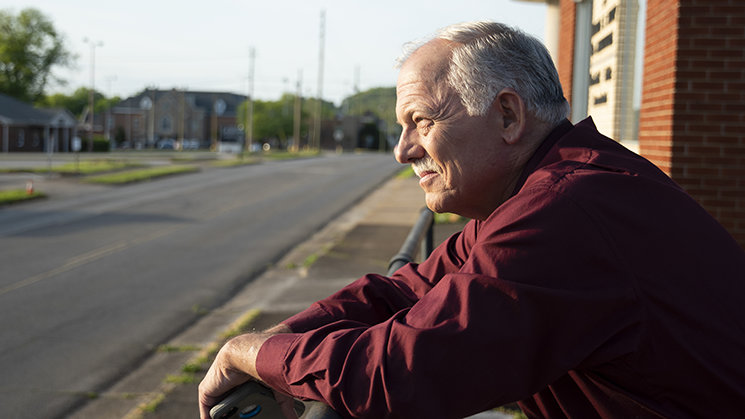Belgium today has its own Bullebak: drugs and alcohol. Like the monster of old, it lures youth with false promises of heightened perceptions, dizzying joy, life as an endless party. But like the Bullebak, the victim is dragged down into his own dark abyss of numbness, disability and addiction.

The monster of drugs consumes Belgium, a nation of 11.7 million, 1.1 million of whom drink alcohol every day, and one out of ten of whom struggle with alcohol abuse. From alcohol, one then graduates to illicit drugs; in a single year, Belgium recorded 8,800 cases of drug dealing. There’s no way of knowing how many went unrecorded.
With illicit drugs comes lawbreaking, hence the more than 60,000 drug-related crimes committed in Belgium in one year.
“There’s just no layer of society that isn’t touched by the drug problem.”
Swept up along with her countrymen into the maw of the drug beast was fun-loving teenager Julie Delvaux, now the subject of an episode of Voices for Humanity on Scientology Network. From partying with alcohol she moved on to cannabis, goaded by her friends. “They said, ‘Oh, let’s just try it, Julie,’” she remembered. “‘Just do it. How bad can it be?’”
Very bad.
“It changed my perceptions so fast I really felt like it altered my mind. Like I didn’t have control over myself.”
Julie had enough awareness to realize she did better in life without drugs and she stopped taking them. But she saw others who lacked the ability or desire to do the same. “I really saw how bad the drug problem was in my country and how ‘normal’ drugs are,” she says. “There’s just no layer of society that isn’t touched by the drug problem.”
Watching the spiral of death grip her country and its youth, Julie felt helpless to stop it. That is, until one day she attended a drug awareness event sponsored by the Foundation for a Drug-Free World. The premise was simple: education. The Foundation’s materials explained what drugs are—factually—with no preaching or condemnation. “You just read it, you understand it and then you can decide for yourself,” she says.

Joined by friends, Julie organized information booths, distributing Drug-Free World booklets on the street and displaying them on shop counters. She networked with parents, educators and community leaders and, stepping up to become the coordinator of Foundation for a Drug-Free World in Belgium, Julie gave talks and appeared on radio and television—her focus being to reach youth with the truth about drugs.
Since Belgians love biking, music and magic, Julie combined all three to get her message out. A cycling enthusiast herself, she and her Drug-Free World volunteers biked around the nation, distributing nearly half a million educational booklets in Brussels, Mechelen, Ostend and more—10 cities and towns in all. Visitors to Julie’s Drug-Free World booth were treated to musicians, dancers and even a magician. They were also invited to don “simulation glasses” that mimic how the world looks to a person on drugs.
A key stop on her tour was the port of Antwerp, the hub for drug trafficking—into Europe and out to the rest of the world. In 2023, Belgian customs seized 116 tons of cocaine, breaking the record set the prior year in 2022. “There’s definitely a lot of pressure, a lot of promotion being made for this drug culture,” Julie says. “And prevention is really the only solution because it’s the only way to cut the demand.”
With the help of the Church of Scientology, Julie’s team organized open houses and lectures, inviting civic leaders and their friends. These events, along with the cycling tours, awareness booths and interviews over the airwaves, created a snowball effect, enabling Julie and her team to reach 14 percent of her nation’s population with the truth about drugs.
Thanks to Julie, the ravening beast of drugs has been subdued.
“I want
young people to choose a drug-free life,” she says. “I really want that to be the cool thing. And
every booklet distribution that we do and every kilometer we bicycle, we are creating
that movement. And I know that we are really paving the way for a drug-free society.”






















